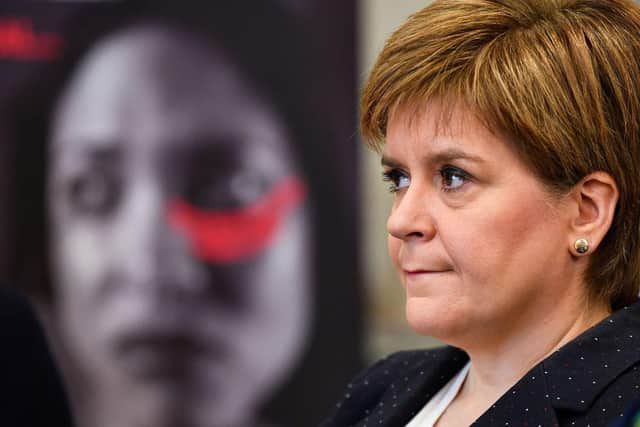Domestic abuse code word: how are Boots and pharmacies supporting victims of domestic violence?
A new scheme has launched to support victims of domestic abuse across the UK.
People suffering from domestic abuse or violence will be able to find a safe space at thousands of high street pharmacies.
Advertisement
Hide AdAdvertisement
Hide AdVictims will be able to "Ask for ANI" in pharmacies as part of a codeword scheme, which has been backed by the UK government.


What support are pharmacies offering?
Domestic abuse victims can make a discreet gesture signalling a need for help by asking for "ANI", which stands for action needed immediately.
Pharmacies and Boots stores will usher victims into a private space where they can receive support by a trained pharmacy worker on the premises.
Once there they can support them to either contact the police or domestic abuse services.
Marc Donovan, chief pharmacist at Boots UK, said: “This is something our pharmacy teams feel very passionately about, and we are proud of their continued dedication supporting those in need at a time of such extraordinary challenge.”
National Pharmacy Association CEO Mark Lyonette added: “Community pharmacies are about people, not just pills. There is a clear and urgent need to support victims of abuse and we want to play our part.
“The Ask for ANI alert mechanism is a discreet and sensitive way to help support some of the most vulnerable people in our society.”
Promotional material will be shown in participating stores and a four-week national advertising campaign will explain how victims can access support.
Why is the scheme being introduced?
Advertisement
Hide AdAdvertisement
Hide AdThe scheme has been rolled out to support domestic abuse victims suffering under the strain of lockdown measures.
Since the UK imposed a national lockdown in March 2020 amid the coronavirus pandemic, domestic abuse has risen.
Safeguarding minister Victoria Atkins said the codeword scheme will offer a “lifeline” to all victims, “ensuring they get urgent help in a safe and discreet way”.
“I know that lockdown restrictions are especially difficult for those experiencing domestic abuse. Home should be a safe place, but for those confined with an abuser it is clearly not,” she said.
“Throughout this pandemic this government has invested millions in ensuring that vital services including helplines, counselling and refuge accommodation remain accessible during this challenging period.”
More than a quarter of a million offences flagged as domestic abuse related were recorded by police over March to June, ONS figures state.
The scheme is in addition to one launched in May by the charity Hestia, which saw safe spaces installed in Boots consultation rooms for survivors to contact support services.
What is domestic abuse?
Domestic abuse is a crime and can take many forms, both physical and mental.
Advertisement
Hide AdAdvertisement
Hide AdThe National Domestic Abuse Helpline states: "Domestic abuse is a pattern of behaviour on the part of the abuser designed to control his partner. It can happen at any point in a relationship, including after you have split up".
It goes on to say how "anyone forced to change their behaviour because they are frightened of their partner or ex-partner's reaction is experiencing abuse".
It’s important to remember that anyone can be a victim of domestic abuse, regardless of gender, age, ethnicity, socio-economic status, sexuality or background, states the government.
The helpline lists some examples, including coercive control and ‘gaslighting’, economic abuse, online abuse, threats and intimidation, emotional abuse and sexual abuse.
What is the domestic abuse helpline?
If you or someone you know has been a victim of domestic abuse then there are actions you can take.
Call the police on 999 if it is an emergency or you're in immediate danger or the local neighbourhood police team if it's not an emergency.
Other organisations who can help include the National Domestic Abuse Helpline on 0808 200 0247, Scotland's Domestic Abuse and Forced Marriage Helpline on 0800 027 1234, Scottish Women's Aid on 0131 226 6606 or Men's Advice Line on 0808 801 0327.